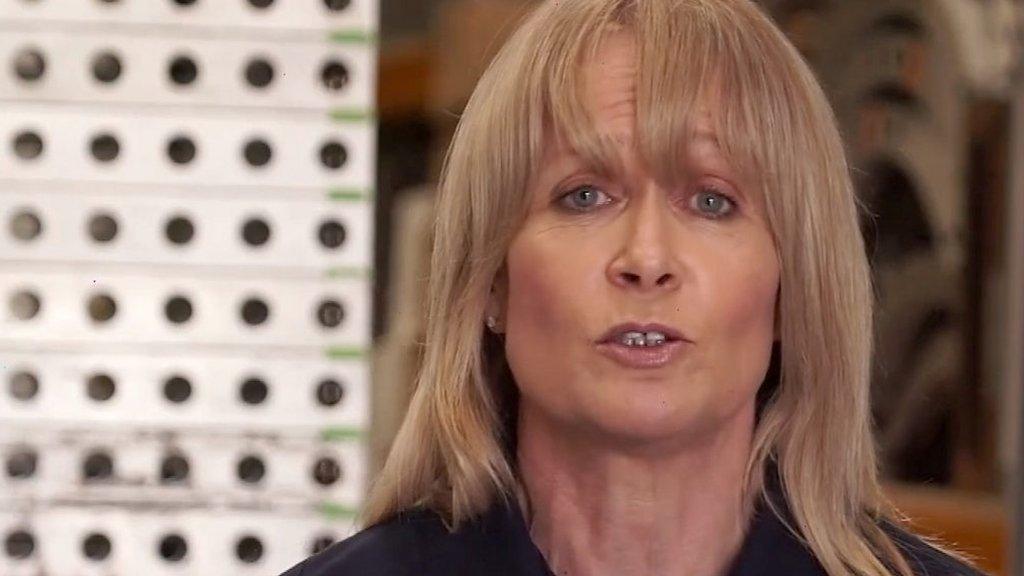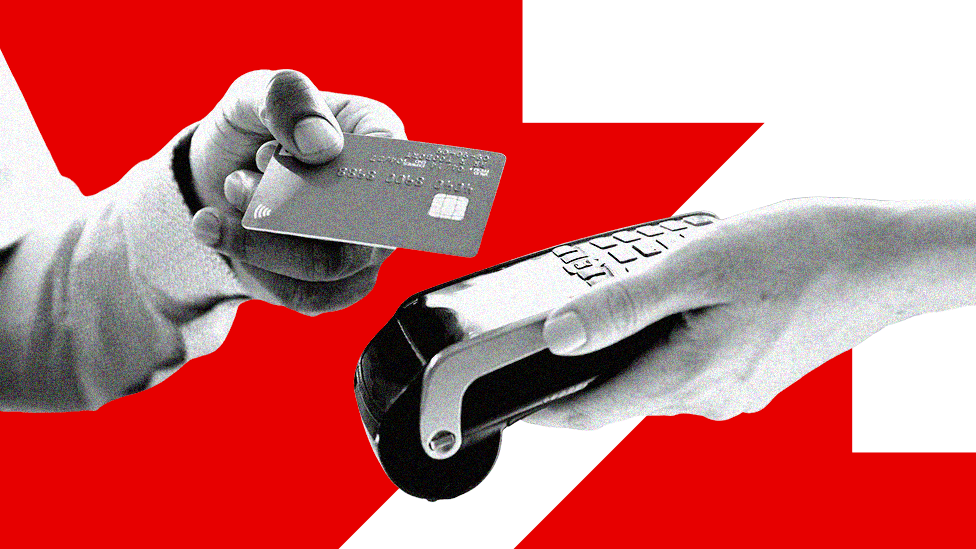UK economy rebounds more slowly than expected
- Published
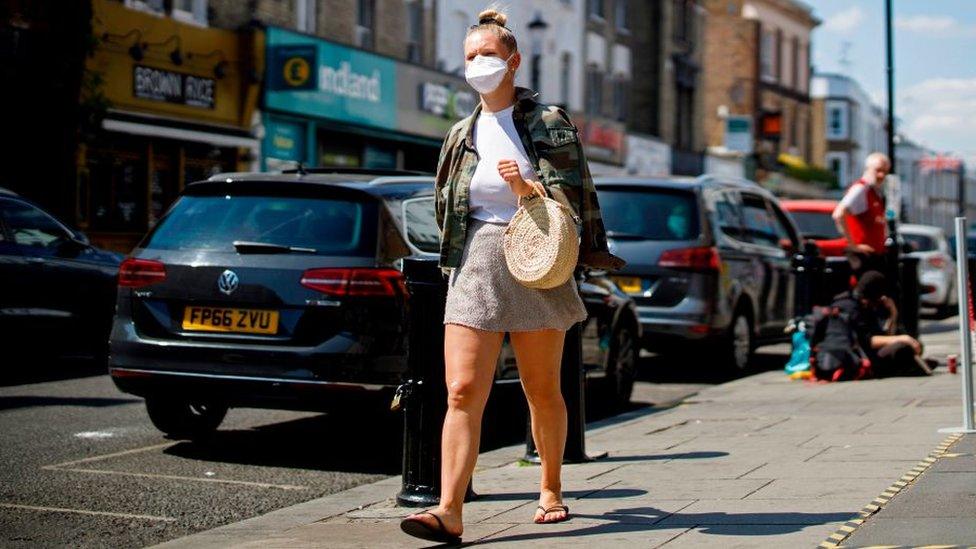
The UK's economy rebounded more slowly than expected in May, growing just 1.8% from the previous month, as the gradual easing of lockdown had a modest impact.
Manufacturing and house building showed signs of recovery in May as some firms saw staff return to work.
But the Office for National Statistics said the economy was "in the doldrums".
As a result of big contractions in previous months, the UK economy is now 24.5% smaller than it was in February, the ONS added.
What do the experts make of the latest figures?
The return to economic growth in May was described as "disappointing" by economists, who had expected an expansion of 5% or more.
The increase came after a fall of 6.9% in March and a record 20.4% decline in April.
In the three months to May, the economy shrank by 19.1% compared with the previous three-month period, the ONS said.
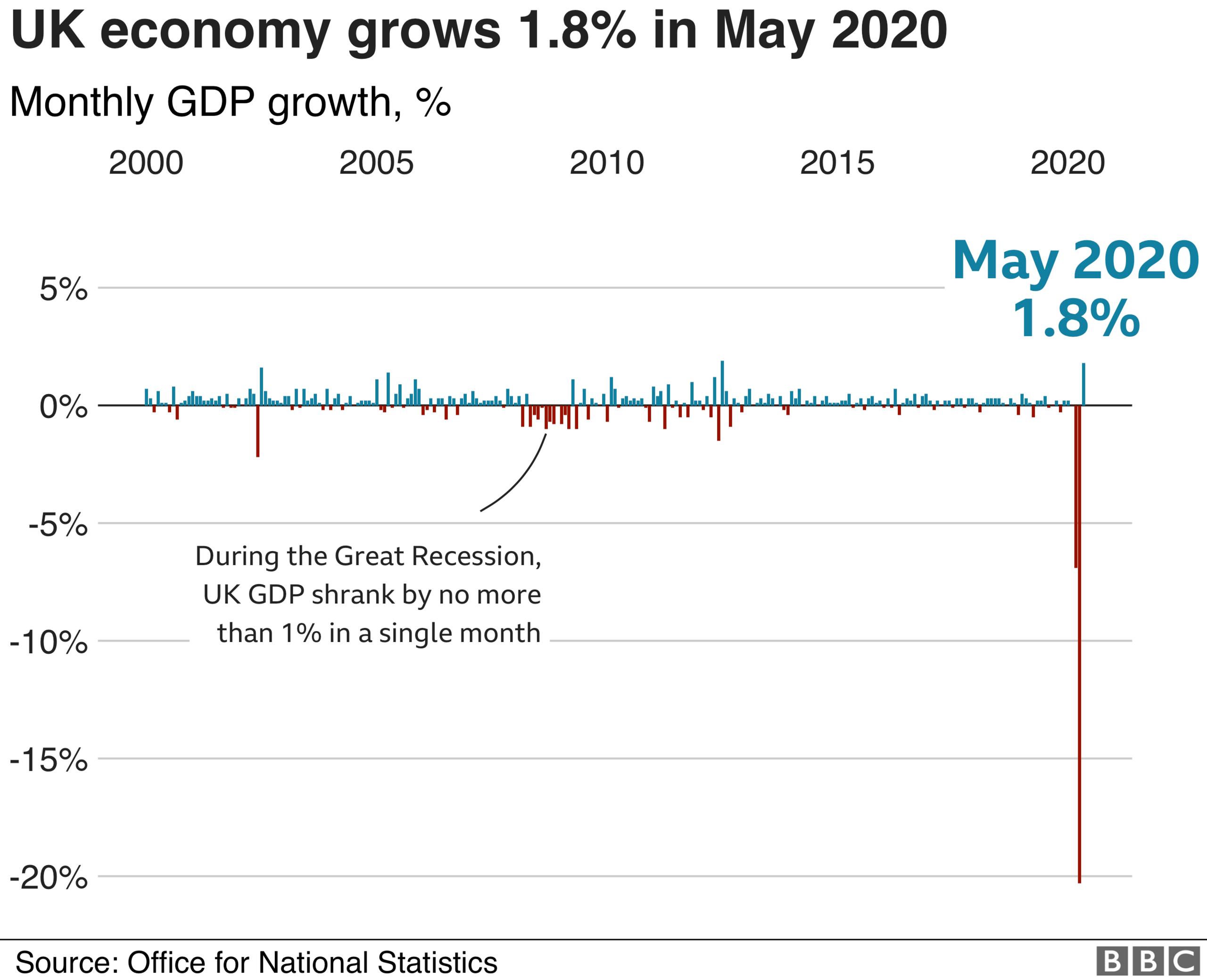
"The economy was still a quarter smaller in May than in February, before the full effects of the pandemic struck," said Jonathan Athow, deputy national statistician for economic statistics at the ONS.
"In the important services sector, we saw some pick-up in retail, which saw record online sales. However, with lockdown restrictions remaining in place, many other services remained in the doldrums, with a number of areas seeing further declines."
Are things going to get better now?
Mr Athow told the BBC's Today programme that there could be signs of improvement in next month's release of figures.
"Some of the survey data we're seeing suggests that as more of the economy reopened and as some of the restrictions were eased, we did see stronger performance in June, but it's really early," he said.
"You've got one month of firm data and some indicators suggesting June might be stronger, but there's a long road to go here and we're still trying to figure out what the best data is to understand the overall picture."
'We need a date to restart so we can save our staff'
Which parts of the economy returned to growth?
May's modest month-on-month expansion came as sectors such as manufacturing, construction, DIY retailers and garden centres were allowed to reopen.
Manufacturing grew by more than 8% during the month, as did construction.

What is GDP?
Gross domestic product (GDP) is the sum (measured in pounds) of the value of goods and services produced in the economy.
But the measurement most people focus on is the percentage change - the growth of the country's economy over a period of time, typically a quarter (three months) or a year. It's been used since the 1940s.
It's the main way of determining the health of the UK economy.

What's the political reaction?
"Today's figures underline the scale of the challenge we face," said Chancellor Rishi Sunak.
"I know people are worried about the security of their jobs and incomes. That's why I set out our Plan for Jobs last week, following the PM's new deal for Britain, to protect, support and create jobs as we safely reopen our economy.
"Our clear plan invests up to £30bn in significant and targeted support to put people's livelihoods at the centre of our national renewal as we emerge through the other side of this crisis."

Can the economy get back on track?

A quarter of the economy's output was lost under lockdown in March and April, and May's figures show even firms who are back in business may be struggling to get on track.
It's one thing being allowed to open the doors again (and some firms remain mothballed); another to be confident you can do so safely. And then there's the biggest hurdle of all, ensuring customers are willing and able to spend again.
As job losses mount, it clear that even some firms who qualify for government help are faltering. Some won't have made it as far.
The Bank of England's own chief economist is among those who've voiced hopes for a "V-shaped" recovery - a swift and full bounce back in activity.
But history tells us that economies can take years to make up lost ground after a slump. The blow from this crisis was felt within days, convalescence may be tougher. And in the meantime, the livelihoods of many may feel the strain.

What are the chances of a speedy recovery?
The British Chambers of Commerce said May's "modest rally" in economic growth did little to alter "the UK's historically downbeat growth trajectory".
"The pick-up in output in May is more likely to reflect the partial release of pent-up demand as restrictions began to loosen rather than evidence of a genuine recovery," said the BCC's head of economics, Suren Thiru.
"While UK economic output may grow further in the short term as restrictions ease, this may dissipate as the economic scarring caused by the pandemic starts to bite, particularly as government support winds down."
Thomas Pugh, UK economist at Capital Economics, said the data showed the recovery was "maybe not so V-shaped after all" - a reference to remarks last month by Bank of England economist Andy Haldane, who said the UK was on track for a quick recovery.
He said May's figure was "a disappointing first step on the road to recovery" and suggested that "hopes of a rapid rebound from the lockdown are wide of the mark".
"Indeed, the path to full economic recovery will probably be much longer than most people anticipate," he added.

Has your business or job been affected by the economic downturn? Share your experiences by emailing haveyoursay@bbc.co.uk, external.
Please include a contact number if you are willing to speak to a BBC journalist.
WhatsApp: +44 7756 165803
Tweet: @BBC_HaveYourSay, external
Send pictures/video to yourpics@bbc.co.uk, external
Please read our terms & conditions and privacy policy
- Published14 July 2020
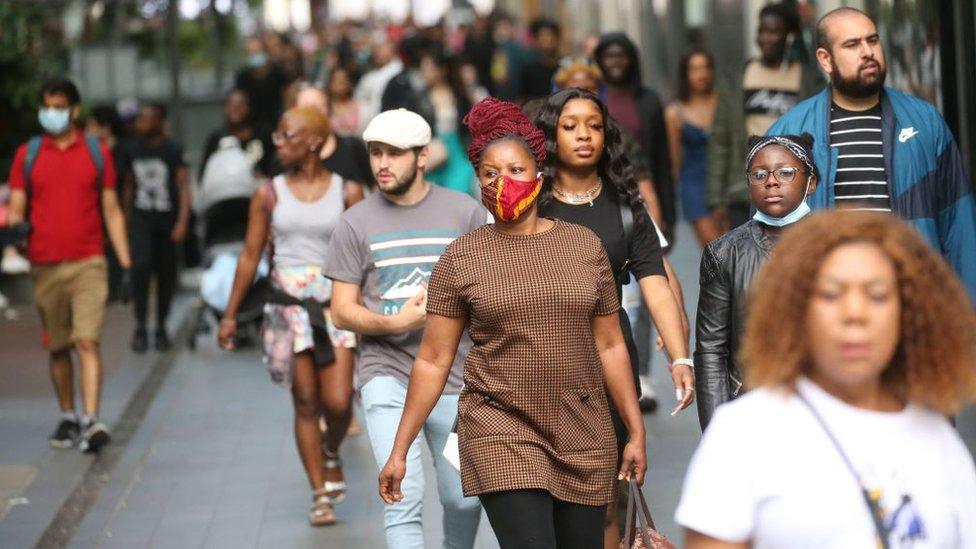
- Published14 July 2020
